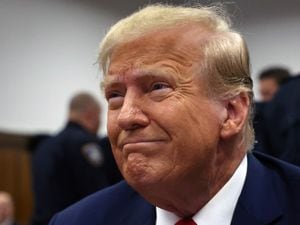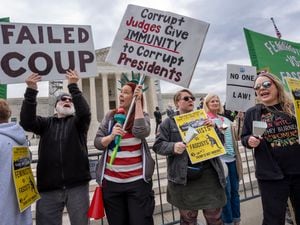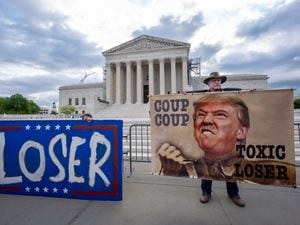Military action against Mugabe was legal, says judge in Zimbabwe
Zimbabwe’s military has sought to show its actions were not a coup.
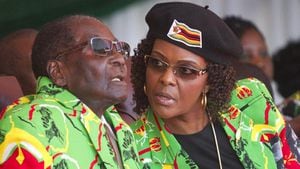
Zimbabwe’s military action leading to Robert Mugabe’s resignation was legal, a High Court judge has ruled, in a key decision as the army seeks to show that its move was not a coup.
High Court Judge George Chiweshe ruled that the military’s actions “in intervening to stop the takeover” of Mugabe’s functions “by those around him are constitutionally permissible and lawful”.
The military stepped in almost two weeks ago after Mugabe fired deputy Emmerson Mnangagwa amid fears that the 93-year-old president’s unpopular wife was positioning herself to take power.
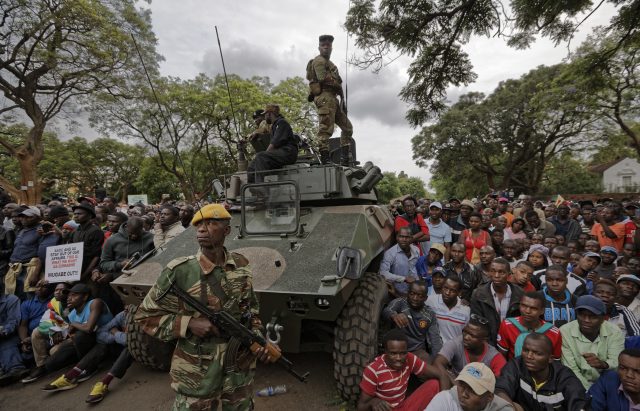
The judge said the army ensured non-elected individuals do not exercise executive functions, an apparent reference to then-first lady Grace Mugabe.
The judge also said Mugabe’s firing of Mr Mnangagwa as vice president was illegal. He was sworn in as president on Friday in a whirlwind reversal of fortunes, becoming just the second leader of Zimbabwe after Mugabe’s 37-year-rule.
The judge’s decisions were criticised by legal and rights experts and by close allies of Mugabe and his wife.
“If these breathtaking High Court Orders granted in Harare yesterday represent what is being peddled as a ‘new path,’ then please pray for Zimbabwe,” tweeted minister of higher education Jonathan Moyo, the most vocal of the Mugabe allies.
The southern Africa director for Human Rights Watch, Dewa Mavhinga, called the rulings “incredible” and said on Twitter: “Strange, captured judiciary?”
Zimbabwe’s military sent tanks into the streets overnight on November 14, taking control of the state broadcaster and announcing that Mugabe had been put under house arrest. It said it was pursuing “criminals” close to Mugabe accused of harming the country’s economy.
The move led the ruling party to turn against Mugabe, launching impeachment proceedings before he announced his resignation on Tuesday, while tens of thousands of Zimbabweans took to the streets in a military-backed demonstration urging him to step aside.
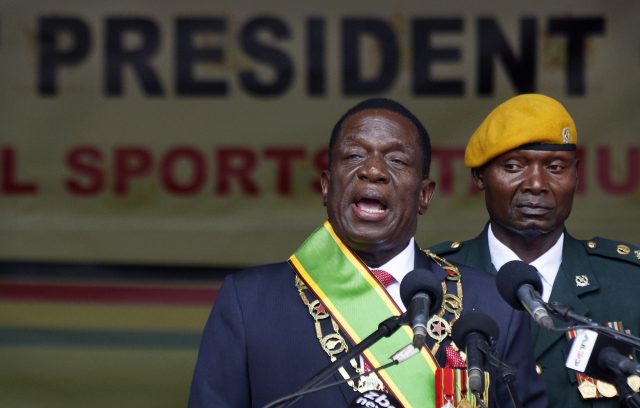
Mr Mnangagwa, who fled the country shortly after his firing, said on his return he had been in “constant contact” with the military during his absence.
Many in the international community have avoided calling the military’s actions a coup, instead urging that Zimbabwe’s authorities respect the rule of law.
Some Zimbabweans have congratulated the military, taking selfies with soldiers and sending up a cheer for army commander Constantino Chiwenga at Friday’s inauguration.
Zimbabwean lawyer Alex Magaisa said the judge’s rulings “may come to haunt Mnangagwa’s government” by setting a precedent in “effectively legalising military intervention in the affairs of government”.
He also wrote: “It is interesting to note that the order was granted by ‘consent’ which suggests that Mugabe agreed to it. If he did, it could be that it was part of Mugabe’s exit deal.”
Mugabe has not been seen in public since his speech last Sunday defying calls to resign. He will remain in Zimbabwe, and Mr Mnangagwa met him on Thursday and assured him of “maximum security”, the state-run Zimbabwe Herald reported.
Mugabe did not attend the swearing-in of Mr Mnangagwa, a 75-year-old former defence and justice minister blamed for a number of crackdowns under Mugabe’s rule.
In his first speech as president, Mr Mnangagwa spoke of reuniting the country and reaching out to the world after years of international condemnation and sanctions over rights abuses and allegedly rigged elections.
The legality of the military takeover is also under scrutiny in new cases against several officials linked to the ruling party faction of Mugabe’s wife. Their lawyers say they were illegally detained by soldiers for days.
Innocent Hamandishe, a member of the ruling Zanu-PF party’s youth league who has been linked to a statement critical of the military, was “abducted” on November 16 and only handed over to police on Wednesday, said his lawyer, Emmanuel Samudombe. He appeared in court on Saturday.
“It’s a serious breach of the constitution,” Mr Samudombe said. Charges against Hamandishe include “causing disaffection” in the security forces during the military’s intervention.
The lawyer described the case as “retribution” but said he would wait to see how authorities deal with it in light of Mr Mnangagwa’s comments urging Zimbabweans not to settle old scores.


